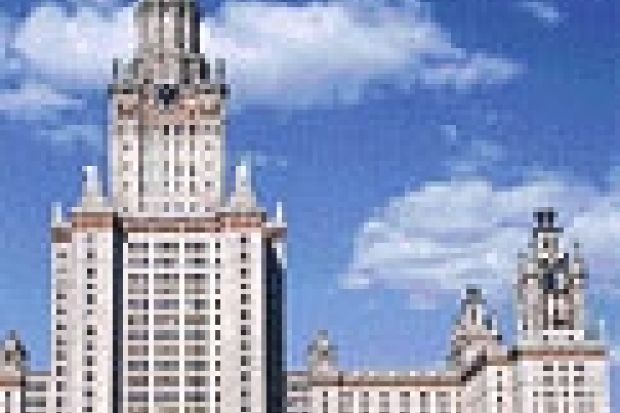Moscow's universities, which once attracted students from across the Soviet Union, are struggling to recruit from outside the city's immediate vicinity.
Under the Soviet regime, about 25 per cent of young people attending universities in Moscow were from local families. Now, according to education minister Vladimir Filippov, 74 per cent of Moscow's student body is from the Moscow region.
He told a news conference that the effect was to make it appear that the elite Moscow universities - the State University and the Bauman Technical University - had been built not for the whole of Russia, but only for Moscow city and province.
Mr Filippov called the news conference to promote the new state examination, which has been designed to combine the school-leaving diploma and the university entrance examination.
According to Mr Filippov, the new diploma will help reopen Moscow's universities and colleges to the whole of Russia's population. Under the present system, entrance examinations are largely oral and have to be taken at the university in question. The travel costs involved are often prohibitive for prospective students, encouraging them only to apply to local institutions.
The situation is exacerbated by the fact that most universities hold their examinations at the same time. Few applicants have a second-choice institution to fall back on, and there is no clearing-house system. Failure to secure a place means waiting a year before making another attempt.
Mr Filippov also spoke of the impact of corruption on recruitment. Bribes and back-handers, he said, meant that young people from poor backgrounds had little chance of winning a place at a prestige university.
The new examination will be a written one, with five papers - mathematics, Russian language and literature, plus three other subjects chosen by the applicant. The exam will be set centrally, taken by the students at local centres and marked by panels made up of academics, school-teachers, parents and representatives of the law-enforcement services.
This arrangement is designed to rule out bribery and the prompting of favoured candidates and, it is hoped, ensure uniform standards across Russia. Email will be used, but this raises the problem of security.
Russia straddles 11 time zones and, although the examination will take place on the same day nationwide, a hacker in Kaliningrad or St Petersburg could access the answers being returned from, say, Vladivostok several hours before taking the examination.
A pilot scheme this year will demand that completed answers are transported in hard copy form only. Eventually, however, each time-zone will have different questions, to thwart potential cheats.
Register to continue
Why register?
- Registration is free and only takes a moment
- Once registered, you can read 3 articles a month
- Sign up for our newsletter
Subscribe
Or subscribe for unlimited access to:
- Unlimited access to news, views, insights & reviews
- Digital editions
- Digital access to THE’s university and college rankings analysis
Already registered or a current subscriber? Login
